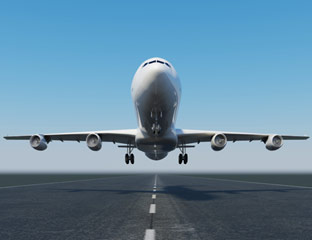
That's not all. On Sunday, an economy class ticket from Mumbai to Kolkata was in the range of Rs 35,000 to Rs 43,000, and business class tickets above Rs 60,000. Similarly, flying from Delhi to Ahmedabad in economy class of full service airlines on Diwali would cost from Rs 6,500 to Rs 38,600.
With the grounding of Kingfisher accounting for a 19% reduction in domestic flights, there is suddenly a huge demand-supply gap and airlines are making the most of it. Leave aside festival eves, flying in general has become 100% costlier, and in crunch times, it could be literally touch the sky.
'Air fares within price bands'
Air fares have shot up this Diwali season. "If people haven't booked well in advance and are planning a last-minute purchase, they will have to pay through their nose. Almost all seats are sold out for Diwali travel and the remaining ones are going for the highest fares," said Anil Kalsi, a leading travel agent and senior advisor of Society of Foreign Travel Operators (India chapter).
"There has to be a rationality to market dynamics. This is plain exploitation of people's compulsion," said Rini Mukherjee, a university teacher who now explores the rail travel option before being compelled to fly. This trend isn't new. When airfares were sky-rocketing, industry regulator Directorate General of Civil Aviation (DGCA) had asked airlines to give a band of ticket prices within which it would have to sell. The airlines gave bands ranging from Rs 5,000 to Rs 50,000. The DGCA accepted it. A senior aviation official told TOI: "Airfares are very high but they are within the price bands that airlines submit for each route to the DGCA. So far we have not come across any case of the price band being breached."
While the price bands have now become a legal shield for airlines to charge as much as they want, the purpose for introducing them has obviously been defeated as there is hardly any correlation between actual cost and price.
"Diwali is being celebrated late this year, in mid-November. This is anyway the peak travel season and India has fewer domestic flights this time (due to Kingfisher's grounding). The net impact is fares defying gravity," said Rajji Rai, who till recently headed the Travel Agents' Association of India. Agents say fares can be expected to fall only after the December holidays. The reason: This winter is witnessing 10,935 weekly domestic flights, 19% less than the 13,541 flights last winter.





Comments
Add new comment